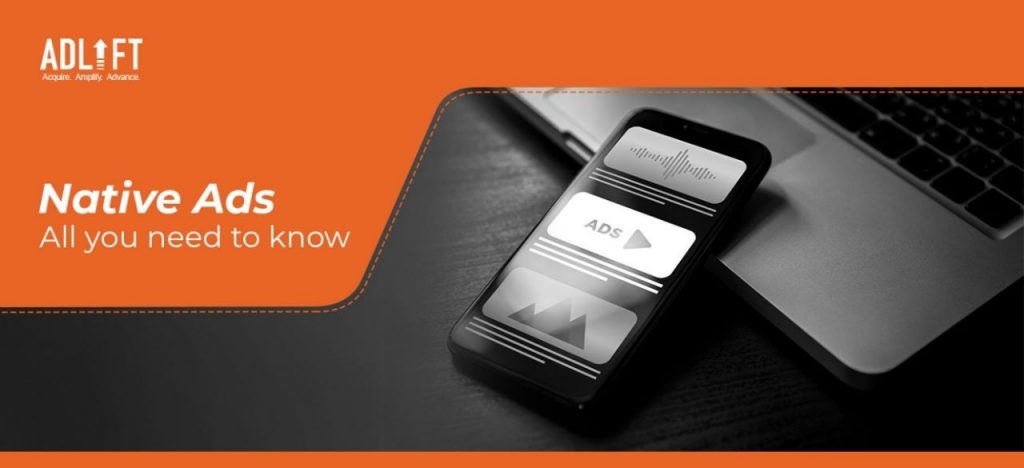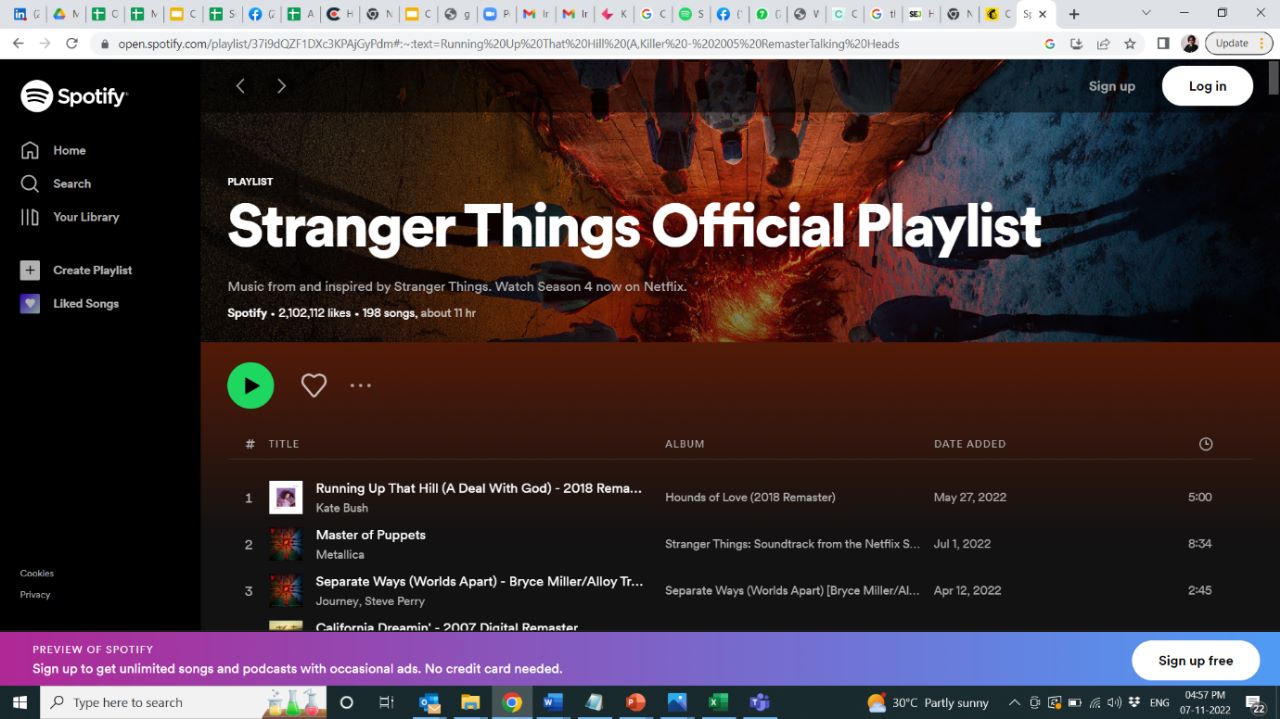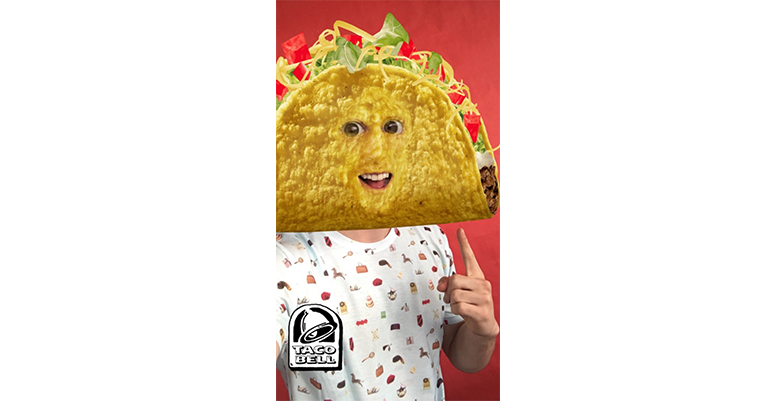One Pit Stop to Understanding Native Ads

Ads are literally on every application you use, be it during a video, between songs, scrolling through any application, ads will be there waiting for you to tap on them. We are not going to lie, they do feel like a synonym for annoyance these days! Considering the number of ads showing up these days is rising and how.
However, businesses have found a new and not-so-annoying way to tackle this problem, by using native ads. Native ads are gaining popularity for all the right reasons. Why? Let’s find out together.
What are Native Ads?
Native ads are a sly technique to promote a business by not coming on too strong for the consumer. Some common examples of native ads can be sponsored social media posts, or any other form of sponsored content on different websites. They are a kind of paid media where the goal is to either gain direct customers for the brand or gain a response from consumers. There are various ways in which native ads stand out from regular ads.
- They won’t steal your sanity! Native ads are designed in such a way that they are not intrusive, and they will feel like a part of the screen and not an additional add-on like a banner or a display ad.
- Native ads are focused on the information-based to gain attention of the target audience instead of focusing solely on the brand and the product. Audiences find it amusing to soak in information instead of a brand image, which leads to more clicks.
These were some of the reasons why native ads are not the same as regular advertisements and are getting a good response from the audience.
Native Marketing Examples
Here are 3 unique example of native marketing advertisements:
1. Spotify + Stranger Things
When Stranger Things was newly launched in the year 2017, it gained immensely positive response, and to increase engagement even further, Spotify and stranger things did a collaboration. In this, Spotify launched a new mode named ‘stranger things’ where according to the most listened genres, the user would get a customized playlist based on which stranger things character they would relate with most.
This ad technique impressed many, as the idea behind the whole theme was impeccable.

Source: Spotify
2. Snapchat + Taco Bell
To celebrate Cinco de Mayo in a fun and interesting way, Taco Bell partnered with Snapchat and designed a filter in which the user’s face turned into a giant Taco Bell. Though simple, this filter gained more than 224 million views in a single day.
This is how the brand entertained the crowd as well as gained a successful promotion in return.
Source: @Tacobell twitter
3. Twitter + Patron Tequila
Famous tequila manufacturers, Patron Tequila decided to launch a social media campaign on international margarita day. In this campaign, they gave away various recipes to make margaritas and asked their audience to try them out and vote for which one they liked the best.
This campaign gained immense traction as the brand chose the right way to filter their targeted audience and engage with them.
Do Native Ads Involve Any Risk?
Every pro has a con, similarly, native ads have certain drawbacks too.
● Can be Misleading
Certain brands use misleading information on the native banner ads to attract customers, but their website or product is not up to the mark. In the scenario, not only does the brand loose customers and reputation, but native ads also gain backlash as the audience will feel they will be misled again by false advertisements.
● Retaliation on the Publisher
When the product quality or the content quality is not appealing of the native ads, the users may retaliate, not on the brand but the publisher website. Since the users are smart enough to understand the pattern, they will figure out the purpose of the brand showing a false image in the ads. Hence, being true to your brand and putting up authentic information on your website and ads is crucial for long term success.
● Takes a VillageWhat Is the Purpose of Native Marketing?
Native ads are a mediator for a brand and their leads connect in an interactive and non-invasive way. These days, most of us are used to seeing random ads on online platforms and get exasperated at their repetitiveness. However, native ads have broken that barrier, and their ads are extremely creative in terms of their visuals, content and how they are placed.
The core purpose of native marketing is to market the product in such a way that the user feels comfortable with the brand and becomes affiliated with it. Usually, the ads don’t talk about the brand directly, they are information-based, which means the ads provide information to the audience related to the products the brand is selling to increase interest and curiosity in the person reading it. This way, the brand gets positive marketing, and the lead gets information and desired product/service.
Conclusion
To sum up, native advertising is an excellent idea if you have the right resources to run the ads. They increase the reach of the brand by various folds and help with creating a room for the lead’s point of view and engagement too. “A plan without execution is a delusion”, hence, good planning is just the start, executing your ideas will lead to a successful brand image or a fruitful business lesson.
Moreover, choosing an agency with experienced individuals in the field can spare the brands a lot of time and money to create native advertisements. That’s exactly where we step in! Allow us to create stunning ad campaigns for your business, connect with us today!
Categories
Recent Posts
- How do I Verify My Business on Google to Ace Local SEO? March 17, 2025
- The Pros and Cons of Pay For Performance SEO March 17, 2025
- Website Structure for SEO: A Blueprint for Better Rankings March 17, 2025
- Is SEO for Subdomains Hurting your Rankings? Let’s Find Out! March 17, 2025
- Outsourcing SEO: A Cost-effective Solution for Startups to Scale Quickly March 17, 2025
- Keyword Cannibalization: Why It Matters for Your Company and How to Avoid It March 12, 2025
- The Role of SEO Projections in Budget Planning for CMOs March 11, 2025
- SEO for Bing: Unlocking Opportunities for Business Owners and Marketers March 11, 2025
- How to Maintain SEO and Rankings: Your SEO Maintenance Checklist March 7, 2025
- Must-have Enterprise SEO Tools to Boost your Online Presence March 7, 2025
Get
in Touch
Contact AdLift for a 360-degree marketing plan


